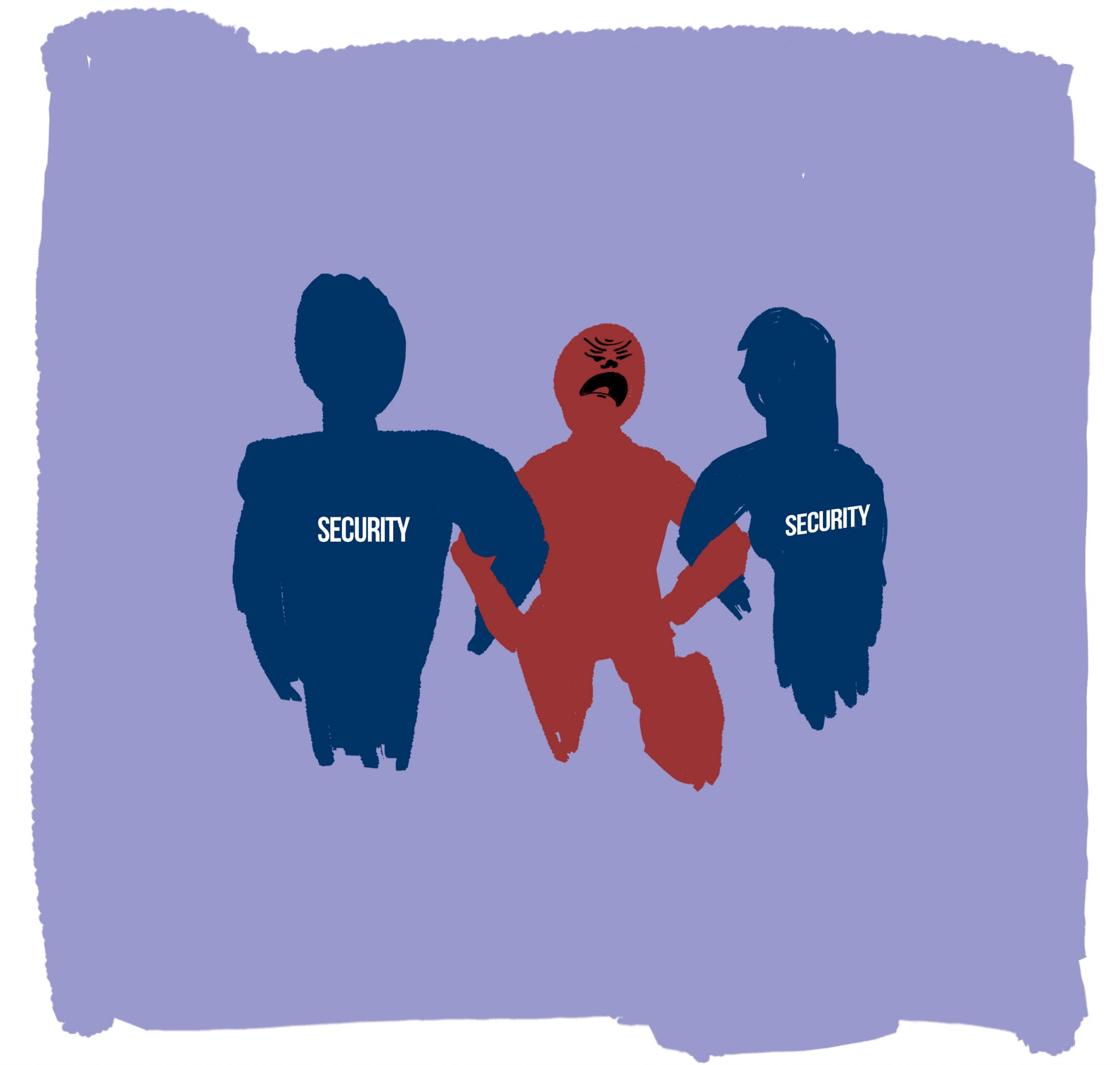Following airline rules isn’t optional


Recently, a woman was dragged off of a Southwest Airlines flight because she claimed that she was deathly allergic to dogs, didn’t have paperwork to prove she was alright to fly and there were two service dogs on board.
The airline has apologized for the way the situation was handled, but I honestly don’t understand why.
People get escorted off airlines every day. It’s not uncommon in the slightest. The vast majority of the time, it’s because the passenger in question was either not following the rules or was being unsafe.
Put yourself in the flight crew’s shoes. A passenger complains that they’re deathly allergic to something you know they will likely come in contact with.
At this point, you have one of two options.
You can take off with the passenger and run the risk of facing a life-or-death a medical emergency – while situated high above any hospital, likely also far away from a medical professional – or you can remove the risk.
The alternative is that you remove the medical risk all together for their own safety and the safety and training of all the crew that would have to deal with the medical emergency.
The choice seems extremely logical to me. Either provide the documentation that you’re okay to fly with a dog or wait until the next flight that doesn’t have any dogs on it.
Unless you’re renting your own private jet, you’re going to get some hiccups, that’s part of the industry. If you’re not willing to listen, you’re going to be asked to leave.
There’s also that Delta flight that has gone down in infamy for dragging a man off when it was overbooked.
Did he deserve to be bloody and bruised? No. But he also should have left when asked without having to be dragged off.
The general process for an overbooked flight is to ask if there are any volunteers who would like to wait for the next flight. These volunteers are usually compensated pretty well.
If there are no volunteers, the people who paid the least amount of money for their tickets will be bumped to the next flight.
That also makes a lot of sense. Why would anyone want to bump the first-class passenger who paid more for their seat over the person who paid with a collection of points?
If it’s not that system – which is pretty rare – it’s a random seat that is chosen to be deplaned.
Sorry to break it to you, but you’re not special. Everyone on that flight is trying to get somewhere – they wouldn’t be on it if they weren’t – and no one gets special treatment if they’re selected.
If it’s you, you’re unlucky, but you’re getting off – willingly or not.
It’s not like the airline is out to get you, either. If you’re being asked to leave, there will always be a good reason for it, whether it’s getting crew to their next flight or the risk for a death on board.
Air travel isn’t like getting into your car. You have hundreds of people around you and an extremely limited crew to take care of you.
You can’t just pull over if someone has a heart attack or an allergic reaction. Preventative measures are the best solution to a problem before it even starts.
Removing a flight-risk, pun intended, is the most logical option and I don’t understand why that’s such a controversial opinion.
You pay for your seat and you’re going to get there eventually, but if you don’t want to be bumped – and you don’t want to listen to the people who actually know the safety procedures and conduct required for flight – you better stick to your car.
Unless you’re renting your own private jet, you’re going to get some hiccups, that’s part of the industry.
If you’re not willing to listen, you’re going to be asked to leave.
If you’re not going to do what you’re asked to do, you’re going to be forced.


